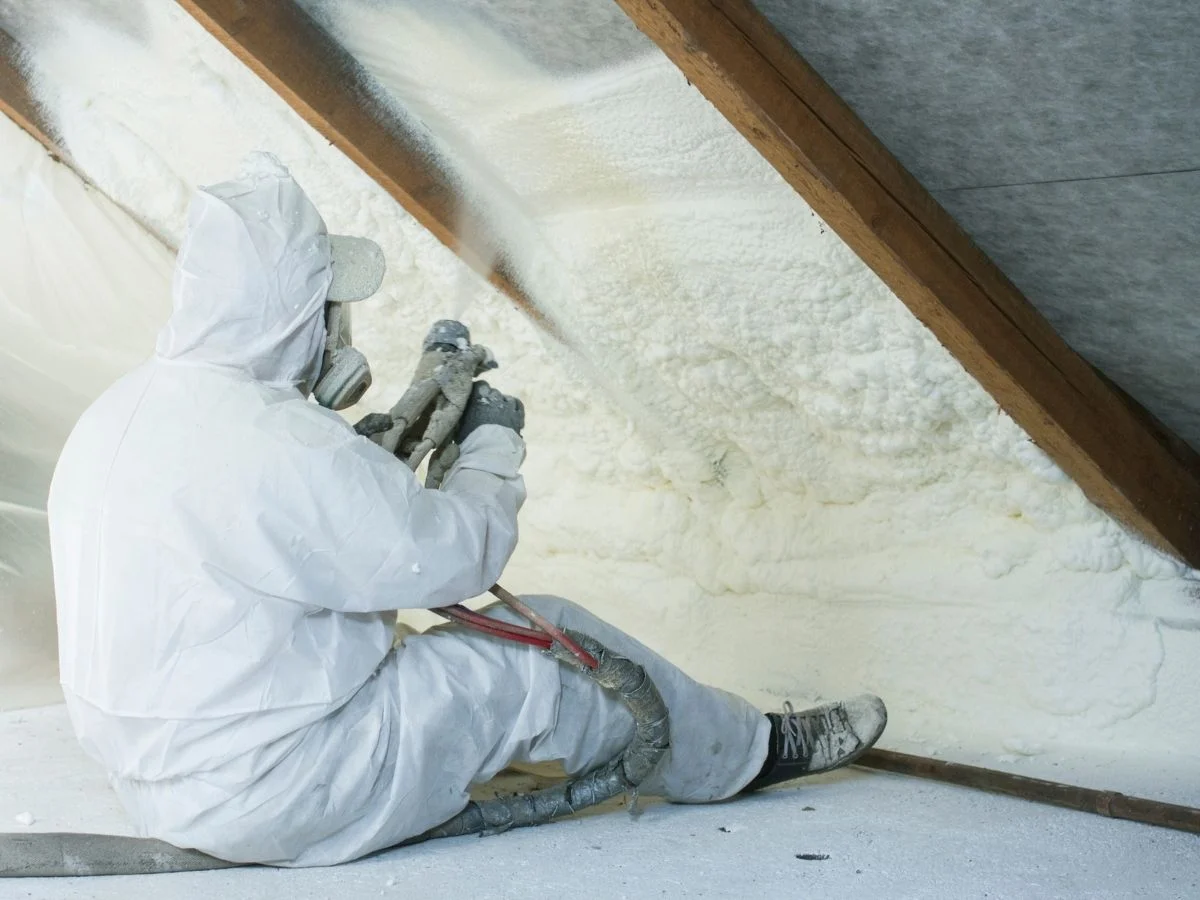How Does Spray Foam Insulation Work to Seal Air Leaks?
When it comes to maintaining a comfortable indoor environment, one of the most critical factors is ensuring your home is properly insulated. Among the different insulation options available, spray foam insulation has gained immense popularity for its effectiveness in sealing air leaks and boosting energy efficiency. In this article, we will delve into how spray foam insulation works to seal air leaks, its benefits, and how it can contribute to a more energy-efficient home.
What is Spray Foam Insulation?
Spray foam insulation is a type of foam that expands and hardens when sprayed into cavities, cracks, and gaps. It is created from two main components: isocyanates and polyols, which are mixed together just before application. This combination forms a foam that expands rapidly to fill even the smallest crevices.
There are two main types of spray foam insulation: open-cell and closed-cell. Open-cell foam is lighter and less dense, while closed-cell foam is denser and more rigid. Both types provide excellent insulation, but closed-cell foam offers higher R-values, meaning it has better thermal resistance and provides superior air sealing.
How Does Spray Foam Insulation Seal Air Leaks?
Air leaks are one of the primary culprits behind energy loss in a home. Even the tiniest gaps around windows, doors, electrical outlets, and plumbing pipes can cause warm or cool air to escape, making it harder to maintain a consistent indoor temperature. This forces your heating or cooling system to work harder, leading to higher energy bills.
Spray foam insulation works by expanding to fill gaps and cracks, creating an airtight seal that significantly reduces or eliminates air leaks. Here’s how it works in detail:
Expands to Fill Gaps:
Once sprayed, the foam expands rapidly, filling every nook and cranny it encounters. Whether it’s small holes around windows, large gaps in walls, or spaces between the attic and the roof, spray foam insulation expands to completely seal them.
Creates an Airtight Barrier:
Unlike traditional fiberglass insulation, which may leave gaps or settle over time, spray foam provides an airtight seal that blocks the flow of air. This prevents warm air from escaping during winter and cool air from escaping during summer, reducing the load on your HVAC system.
Improves Insulation Performance:
By sealing air leaks, spray foam insulation enhances the overall thermal performance of your home. Air leaks are often responsible for a significant amount of energy loss, so by eliminating them, you can keep the interior temperature more stable. This reduces your reliance on your HVAC system, saving you energy and money.
Moisture Resistance:
Closed-cell spray foam also serves as a moisture barrier, helping to prevent mold growth and water damage. This is particularly important in areas like basements, attics, and crawlspaces, where moisture can lead to costly structural damage.
Benefits of Using Spray Foam Insulation to Seal Air Leaks
Energy Efficiency:
As mentioned earlier, the primary advantage of spray foam insulation is its ability to reduce air leaks. This leads to more efficient heating and cooling, as your HVAC system won’t have to work as hard to maintain a consistent temperature. Lower energy consumption translates to reduced utility bills.
Enhanced Comfort:
Sealing air leaks with spray foam insulation improves the comfort level of your home. You’ll notice fewer drafts and more consistent temperatures in different rooms, contributing to a more comfortable living environment.
Better Indoor Air Quality:
By sealing gaps and cracks, spray foam insulation helps keep out pollutants, dust, and allergens that can enter through these openings. This can contribute to improved indoor air quality, which is especially beneficial for individuals with allergies or respiratory issues.
Long-Lasting Solution:
Unlike other insulation materials that can settle or degrade over time, spray foam insulation remains stable and effective for years. The foam won’t shrink, settle, or lose its insulating properties, providing a long-term solution for air leaks and energy efficiency.
Soundproofing Benefits:
Spray foam insulation also provides a level of soundproofing by reducing the transmission of sound through walls, ceilings, and floors. This can be especially beneficial in noisy neighborhoods or multi-family dwellings.
Environmental Impact:
Spray foam insulation can contribute to a more eco-friendly home by reducing energy consumption and lowering your carbon footprint. By using less energy to heat or cool your home, you’re also helping reduce the overall demand for fossil fuels used in power generation.
Applications of Spray Insulation for Sealing Air Leaks
Spray foam insulation is versatile and can be used in a variety of locations to seal air leaks. Some of the most common applications include:
Attic Spaces:
The attic is often one of the most common areas for air leaks. Gaps around vents, pipes, and the roofline can allow significant heat loss. Spray foam insulation can seal these gaps and keep your attic properly insulated.
Basements and Crawlspaces:
Basements and crawlspaces are prone to moisture and drafts, making them important areas to insulate. Spray foam provides both air sealing and moisture resistance, helping to protect your home’s foundation and prevent mold growth.
Wall Cavities:
Whether you’re building a new home or retrofitting an existing one, spray foam insulation can be sprayed into wall cavities to fill any gaps, cracks, or voids that may exist, preventing air leaks.
Windows and Doors:
Gaps around windows and doors are some of the most common sources of air leaks. Spray foam can be applied around these areas to create a tight seal and prevent drafts.
Plumbing and Electrical Penetrations:
Air leaks can occur around plumbing pipes, electrical wiring, and other penetrations in your walls and ceilings. Spray foam can seal these openings, blocking air and moisture from entering your home.
Conclusion
Spray foam insulation is an effective solution for sealing air leaks and improving the energy efficiency of your home. Its ability to expand and fill even the smallest gaps makes it an excellent choice for reducing energy loss, enhancing comfort, and contributing to better indoor air quality. Whether you’re looking to insulate your attic, basement, or walls, spray foam insulation can provide lasting benefits that help lower your energy bills and create a more comfortable living space.
FAQs
1. How much does spray foam insulation cost?
The cost of foam insulation depends on the size of the area to be insulated and the type of foam used. On average, it can cost between $0.50 to $2.50 per square foot. Although it may have a higher upfront cost compared to traditional insulation, the long-term energy savings can make it a worthwhile investment.
2. Is spray foam insulation safe?
Yes, spray foam insulation is safe when installed by a professional. During installation, it’s important to ensure proper ventilation and safety precautions are followed, as the chemicals involved can produce fumes. After installation, spray foam is completely safe and does not emit harmful substances.
3. Can I install spray foam insulation myself?
While DIY spray foam kits are available, it’s recommended to hire a professional to install spray foam insulation. Professionals have the proper equipment and experience to ensure the foam is applied correctly and safely.
4. Will spray foam insulation help with noise reduction?
Yes, spray foam insulation helps reduce sound transmission between rooms, making it a great option for soundproofing. It is especially effective in areas like shared walls in apartments or noisy areas of the home.
5. How long does spray foam insulation last?
Spray foam insulation is highly durable and can last for the lifetime of your home if properly installed. It does not degrade, settle, or shrink over time, providing long-term energy efficiency benefits.

